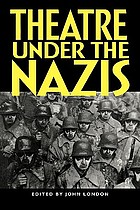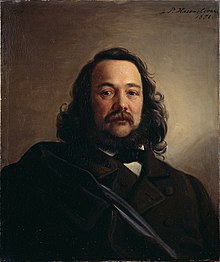I found a gem on Netflix the other day. Mystery Science Theatre 3000 did a parody of Hamlet, but not just any Hamlet, a German version from the 1960's made for television. It was obviously dubbed into English, but you can still see some directorial choices, like costume and set.
Aside from the hilarious jokes made of the show (like, "Hey, that line's from Hamlet!"), the movie was fun to watch. Even my wife, who is not usually into Shakespeare, or German films, enjoyed it. Here are a few of my thoughts as I watched.
The "too, too solid flesh" speech done as voiceover while the coronation party are departing, then becoming spoken when they are all gone. This leads the audience to believe that Hamlet is constantly in his head, talking to himself, thinking too much.
There is a minimalist set, it looks like it was leftover from a stage production. That was probably intentional, as they were probably trying to imitate a successful theatre production.
When the ghost speaks to Hamlet, we do not see the ghost, we hear him, but the camera is focused on Hamlet's face the whole time. Interesting, does this imply that the ghost is merely in Hamlet's mind?
The scene that Ophelia tells her father about, that Hamlet came to her ("As I was sewing in my closet....") they actually show. A little creepy, actually. Hamlet wanders in, shirt undone, hair all frizzled, and wide-eyed and stares at Ophelia, then slowly backs out of the room, which causes Ophelia to run off and find her father. There are no lines, no speech, just Hamlet staring at Ophelia, then walking away.
The "To be or not to be" speech starts out with Hamlet standing behind a wall, or a doorway, or a stairway (it's a black and white film and filmed with a lot of dark shadows so a lot of detail in the set are hard to make out). Still, for the first half of the speech Hamlet's face is mostly blocked, you can't see his mouth, only his eyes. Strange.
Ophelia, mad Ophelia, does not sing. She just smiles and says her lines with a goofy grin. Doesn't really look that mad, except that she's handing out weeds and calling it different flower names.
It was a fun film, mostly because of the commentary that MST3K provides, but I found it interesting looking at the elements of the German production. I would recommend this movie to anyone looking for a good Shakespearean laugh!




